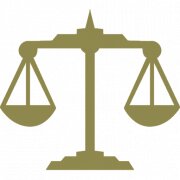Best Native People Lawyers in Switzerland
Share your needs with us, get contacted by law firms.
Free. Takes 2 min.
Or refine your search by selecting a city:
List of the best lawyers in Switzerland
About Native People Law in Switzerland
The concept of "Native People" in the context of Switzerland can be somewhat different compared to countries with indigenous populations such as the Americas or Australia. Switzerland's native populace traditionally refers to its long-established communities, particularly within its distinct cultural regions including the German-speaking, French-speaking, Italian-speaking, and Romansh-speaking areas. There are no formally recognized indigenous tribes as defined in other global contexts. However, discussions around traditional rights, cultural preservation, and regional autonomy are pertinent to Swiss societies. Legal interests related to native people's rights typically revolve around cultural heritage, linguistic rights, and autonomy within Swiss cantons.
Why You May Need a Lawyer
There are several situations where individuals or communities in Switzerland may require legal assistance concerning matters relevant to native peoples:
- **Cultural Heritage:** Seeking protection or rights regarding cultural sites or traditional practices.
- **Language Rights:** Ensuring the official recognition and use of native languages, particularly in education and public life.
- **Regional Autonomy:** Navigating legal frameworks concerning the autonomy of regions within Switzerland.
- **Human Rights Issues:** Addressing grievances where cultural rights or traditional practices are threatened.
- **Discrimination Cases:** Fighting against discrimination based on cultural or regional identity.
Local Laws Overview
Swiss laws provide a robust framework for the protection of cultural rights and autonomy of its diverse regions. Key aspects include:
- Federalism: Switzerland’s federal structure allows significant autonomy and legal recognition of its various linguistic and cultural regions.
- Cultural Preservation: Laws exist to safeguard the cultural heritage of Switzerland’s diverse communities.
- Language Legislation: Official language policies ensure the preservation and use of native languages in different cantons.
- Human Rights Protections: Swiss legal principles strongly uphold human rights, including those protecting cultural and traditional identities.
Frequently Asked Questions
1. Are there any recognized indigenous peoples in Switzerland?
No, Switzerland does not recognize indigenous peoples in the same way as countries with colonial histories. Instead, it recognizes distinct cultural and linguistic communities.
2. How does Switzerland protect native languages?
Switzerland has four national languages: German, French, Italian, and Romansh. Laws ensure their use and preservation, particularly in education and administration.
3. What legal recourse exists for cultural discrimination?
Individuals facing cultural discrimination can seek recourse through Swiss anti-discrimination laws and may engage with the Federal Commission against Racism.
4. Can regional traditions influence laws in Switzerland?
Yes, due to Switzerland’s federal structure, local laws may reflect regional traditions, as cantons have autonomy to legislate in many areas.
5. What role do cantons play in cultural preservation?
Cantons have significant responsibility and freedom to advance policies and laws that protect and promote regional cultures and languages.
6. How can native communities safeguard cultural heritage sites?
Communities can seek legal protection of heritage sites through federal and cantonal cultural preservation laws.
7. Is assistance available for legal issues concerning native culture?
Yes, individuals can engage private legal counsel, and there are also public institutions that may offer guidance and support.
8. Does Switzerland have laws protecting traditional practices?
Yes, albeit indirectly. Swiss laws support cultural diversity and protect practices inherent to cultural identities within its federal framework.
9. What is the procedure to address a grievance related to native rights?
The procedure may involve lodging a complaint with canton authorities, pursuing mediation, or legal action through the Swiss judicial system.
10. Are there international treaties relevant to Switzerland’s native communities?
Switzerland is a signatory to various international human rights treaties which bolster its national commitments to cultural rights and protections.
Additional Resources
Several resources and organizations may provide additional guidance and support:
- **Swiss Federal Office of Culture:** Offers information on cultural policies and heritage protection.
- **Federal Commission against Racism:** Addresses issues of discrimination and provides guidance.
- **Pro Helvetia:** A foundation to promote Swiss cultural projects and intercultural dialogue.
- **Cantonal Offices:** Local government bodies often have resources on regional language and cultural laws.
Next Steps
If you need legal assistance concerning native people’s rights in Switzerland, consider the following steps:
- **Identify the Specific Issue:** Clearly define the legal concern or issue you are facing.
- **Research Applicable Laws:** Familiarize yourself with relevant local laws or seek initial guidance from available resources.
- **Consult a Lawyer:** Engage a legal professional specializing in cultural or human rights law in Switzerland.
- **Contact Relevant Authorities:** For specific issues, contact local or federal bodies that manage cultural, linguistic, or regional autonomy laws.
Effective legal counsel can offer clarity, support, and greater chances of a favorable outcome in addressing legal issues concerning native people's rights in Switzerland.
Lawzana helps you find the best lawyers and law firms in Switzerland through a curated and pre-screened list of qualified legal professionals. Our platform offers rankings and detailed profiles of attorneys and law firms, allowing you to compare based on practice areas, including Native People, experience, and client feedback.
Each profile includes a description of the firm's areas of practice, client reviews, team members and partners, year of establishment, spoken languages, office locations, contact information, social media presence, and any published articles or resources. Most firms on our platform speak English and are experienced in both local and international legal matters.
Get a quote from top-rated law firms in Switzerland — quickly, securely, and without unnecessary hassle.
Disclaimer:
The information provided on this page is for general informational purposes only and does not constitute legal advice. While we strive to ensure the accuracy and relevance of the content, legal information may change over time, and interpretations of the law can vary. You should always consult with a qualified legal professional for advice specific to your situation.
We disclaim all liability for actions taken or not taken based on the content of this page. If you believe any information is incorrect or outdated, please contact us, and we will review and update it where appropriate.
Browse native people law firms by city in Switzerland
Refine your search by selecting a city.













